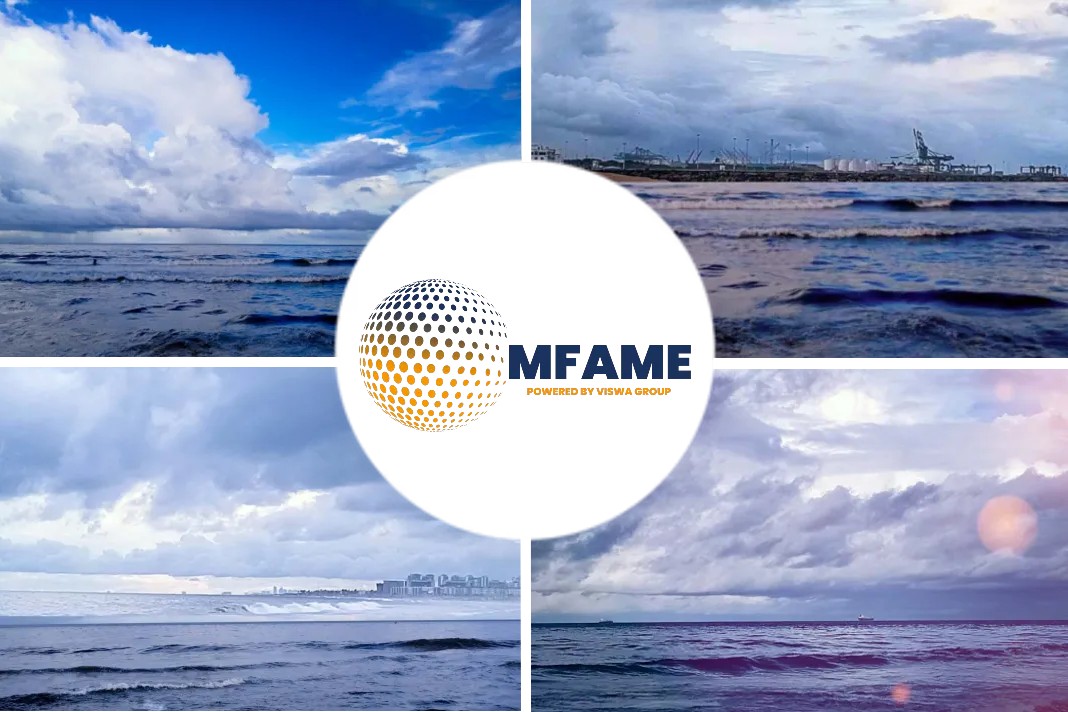
Mitsubishi Shipbuilding Co., Ltd., a Mitsubishi Heavy Industries (MHI) Group company based in Yokohama, today held a launch ceremony for a demonstration test ship for the transport of liquefied carbon dioxide (LCO2), to be utilized in conjunction with initiatives by the New Energy and Industrial Technology Development Organization (NEDO) for its demonstration projects (CCUS R&D and Demonstration Related Project / Large-scale CCUS Demonstration in Tomakomai / Demonstration Project on CO2 Transportation / R&D and Demonstration Project for CO2 Marine Transportation), as reported by Market Screener.
Launch ceremony
The ceremony took place at the Enoura Plant of MHI’s Shimonoseki Shipyard & Machinery Works in Shimonoseki, Yamaguchi Prefecture, in the presence of representatives of the ship’s owner Sanyu Kisen Co., Ltd. and other partners.
One of the recipients for the NEDO demonstration projects, the Engineering Advancement Association of Japan (ENAA), will rent the ship from Sanyu Kisen and install and run the LCO2 marine tank system used for conducting research and development.
The ENAA will hire three more project partners, Kawasaki Kisen Kaisha, Ltd. (“K” LINE), Nippon Gas Line Co., Ltd., and Ochanomizu University, to carry out research and development on the pressure control and stability of the LCO2 transported on the ship, plan demonstration experiments, and create and present technologies for secure and affordable CO2 transport.
Using its gas handling technology and knowledge developed through the construction of liquefied gas carriers, Mitsubishi Shipbuilding is in charge of all areas of ship design through construction, including the cargo containment system (both LPG and LNG types).
Attending the launch event were representatives from Sanyu Kisen, Nippon Gas Line, and “K” LINE. The ship will be turned over in the second half of fiscal 2023 after being outfitted and sea-tried.
Carbon neutral society
The techniques of carbon dioxide capture, utilisation, and storage (CCUS) are becoming more popular as a way to create a society that is carbon neutral. Demand is predicted to rise for LCO2 carriers able to transport such cargo securely and affordably because the sources of CO2 emissions are frequently located far from the places chosen for carbon usage or storage. As part of the MHI Group’s energy transition strategy, Mitsubishi Shipbuilding will expand on its expertise in building this ship by developing the various LCO2 vessel technologies required to create a value chain for CCUS.
MHI Group is taking strategic steps to bolster its enterprise in preparation for the energy transition. For its part in this initiative, Mitsubishi Shipbuilding has outlined a vision for the decarbonization of the maritime economy through renewable energy and the carbon cycle, as well as a safe and secure society through autonomy and electrification, in its “MARINE FUTURE STREAM” growth strategy. Mitsubishi Shipbuilding is working to generate new ideas in marine-related innovation and turn them into reality. Mitsubishi Shipyard will actively seek the development and commercialization of LCO2 carriers as part of this initiative, and as a marine systems integrator, it will work towards decarbonization.
Did you subscribe to our newsletter?
It’s free! Click here to subscribe!
Source: Market Screener













